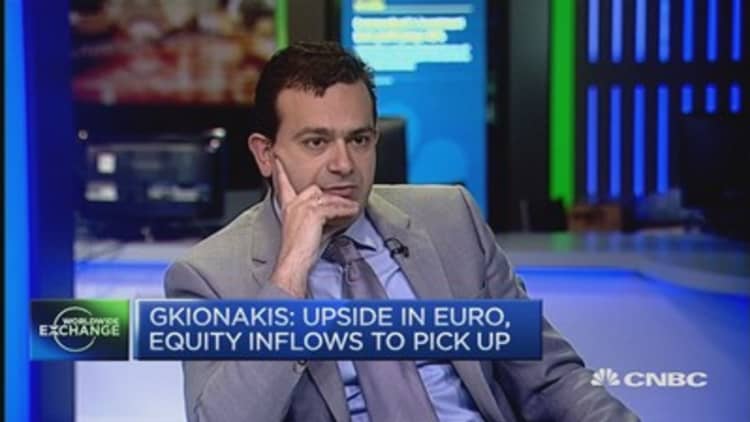France: It's Europe's second-biggest economy yet it's likely to remain one of the region's biggest laggards for some time to come, analysts say.
Data on Thursday showed French industrial production rose 1.4 percent in the first quarter, its strongest pace in four years – apparently boding well for a nascent recovery thanks to the weak euro, lower oil prices and European Central Bank stimulus.
Nonetheless, with unemployment stubbornly high and the Socialist government facing resistance from trade unions and the left wing of its party to implementing long-term economic reforms, concerns about France's recovery will remain, analysts said.
Indeed, a survey published by Markit earlier this week showed factory activity in France remains in contraction territory together with beleaguered Greece.
Read MoreEuclid Tsakalotos, the new 'friendly face' of Greece?
"Warning lights are flashing particularly brightly over France and Greece," Markit chief economist Chris Williamson said in a statement following the release of purchasing managers' index (PMI) – a closely-watched measure of activity.
Other economists added that while the PMI data has not always been the most reflective indicator of French economic activity in recent years, there remained significant areas of concern.
"The start of the year does seem better for France – the consumer recovery has gained momentum and the industrial production numbers have been better," Jessica Hinds, European Economist at Capital Economics in London, told CNBC.
"But we remain fairly pessimistic on France," she added. "We are cautious because of high unemployment and structural rigidities as France struggles with a rigid labor market and competitiveness."
France's unemployment rate is at about 10.4 percent, below the euro area average of just over 11 percent but well above the average of around 7 percent seen in the economies of the Organisation for Economic Co-operation and Development.
Analysts said improvements in the employment numbers remained elusive since French companies continued to make job cuts. French nuclear group Areva, for instance, said Thursday it plans to cut 6,000 jobs over the next three years.
Hinds said she forecast the French economy to grow about 1 percent this year and next. Capital Economics expects Germany, Europe's biggest economy, to expand 2 percent this year.
Wait a minute

Still, France's economy would be one of the biggest beneficiaries in the region from the slide in oil prices and euro seen in the past year, said UBS European Economist Martin Lueck.
Brent crude oil prices have tumbled some 36 percent over the last 12 months, while the euro has shed almost 20 percent of its value against the dollar, giving exporters in the euro zone a boost in overseas markets.
Read More Euro zone recovery just got a 'reality check'
"France relies on consumer spending and real disposable income is getting a boost from the fall in oil prices," Lueck said.
"France is a laggard but the current economic environment is stabilising and giving some breathing space for reforms," he added.
And implementing reforms is the key to turning around France's long-term growth prospects, economists said. France's national statistics office Insee said last month that even with a weak euro and lower oil prices, businesses were holding off on new investment for now.
Following the release on Wednesday of euro zone composite PMI data, with French PMI falling in April to a three-month low of 50.6, Markit's Williamson said in a note: "France… saw growth slow to near stagnation, suggesting the government needs to worker harder to boost competitiveness and lift confidence among both business and consumers if France is not to be left behind in the euro area's recovery."
Follow us on Twitter: @CNBCWorld


